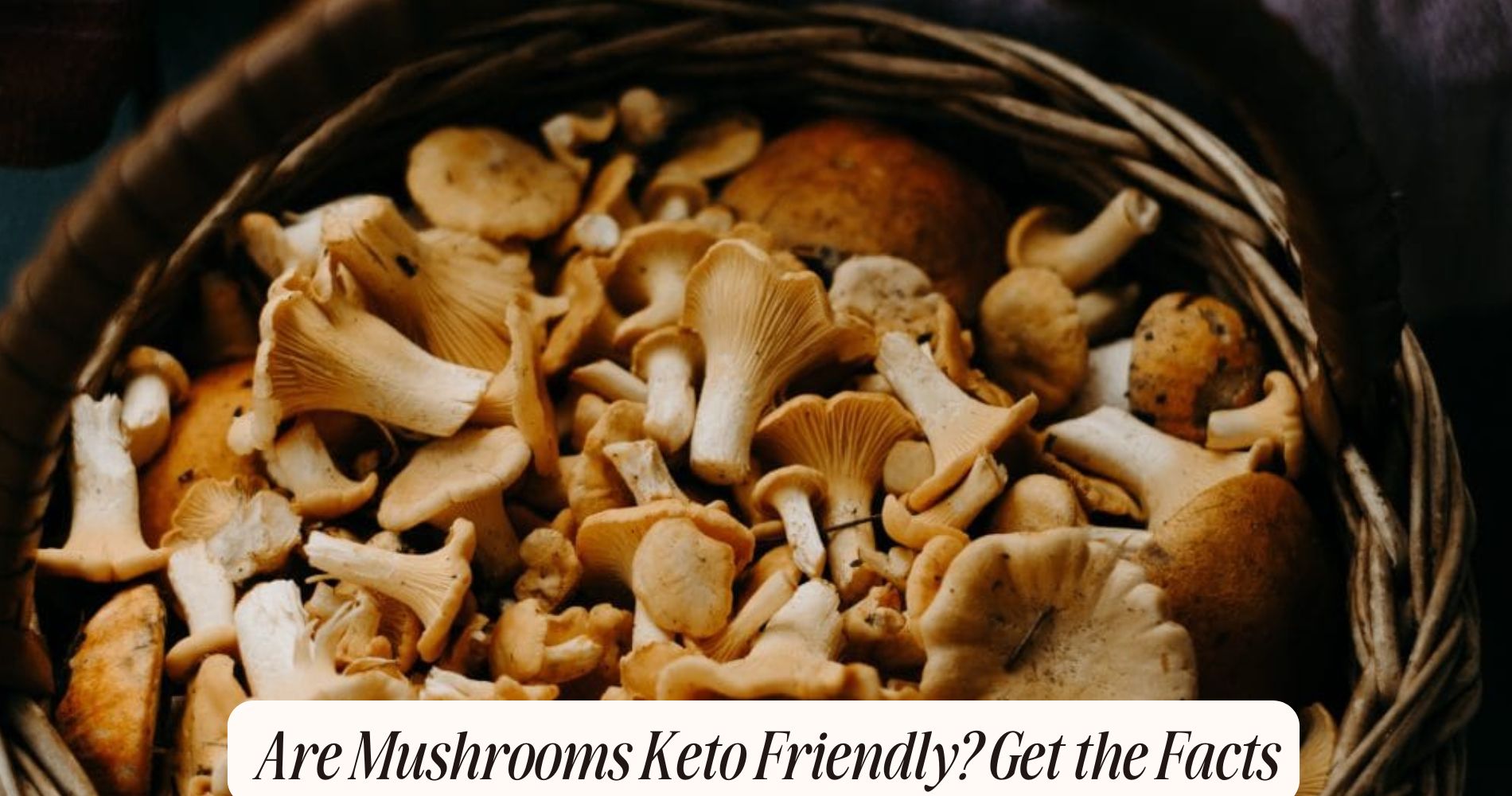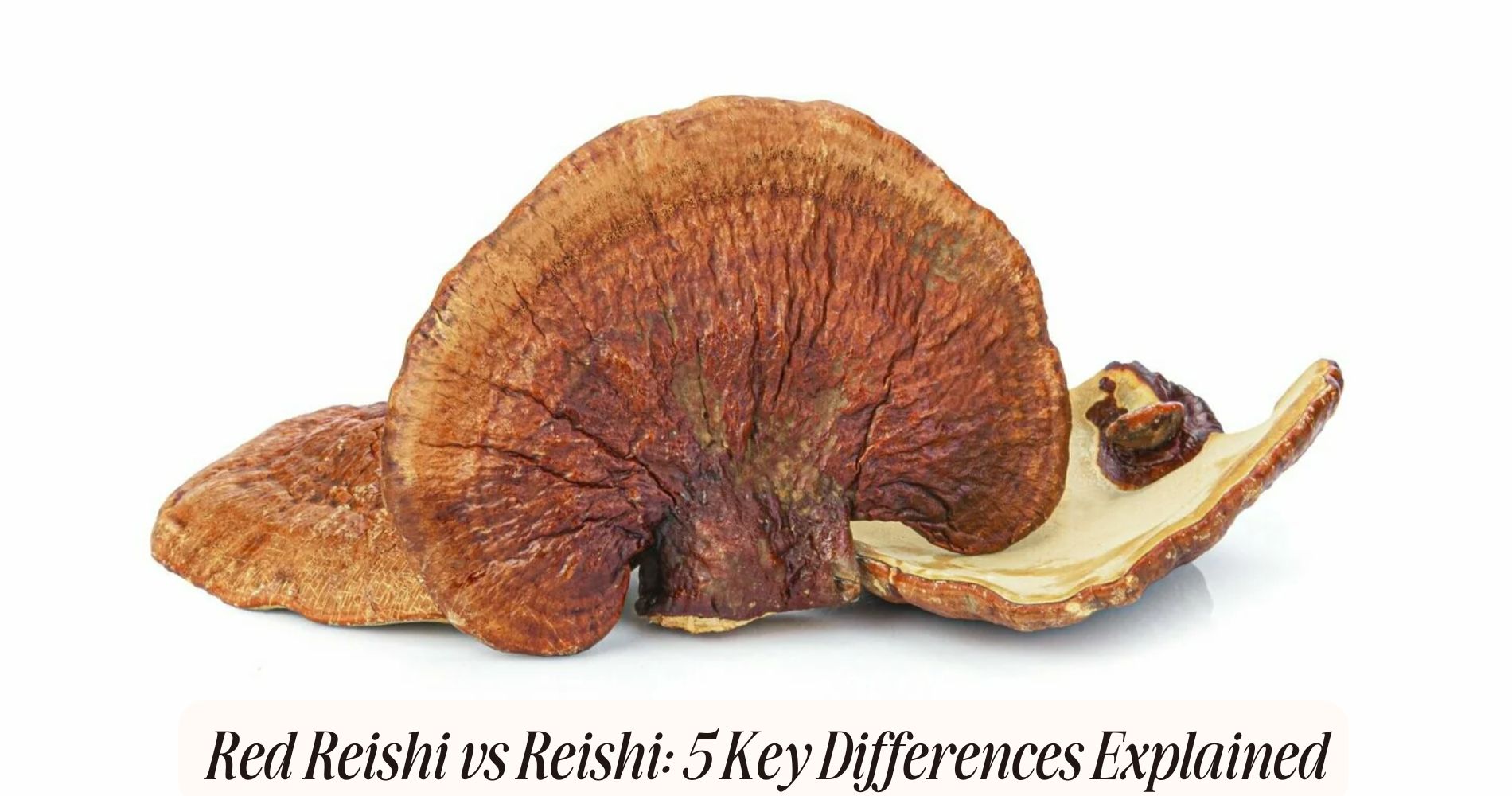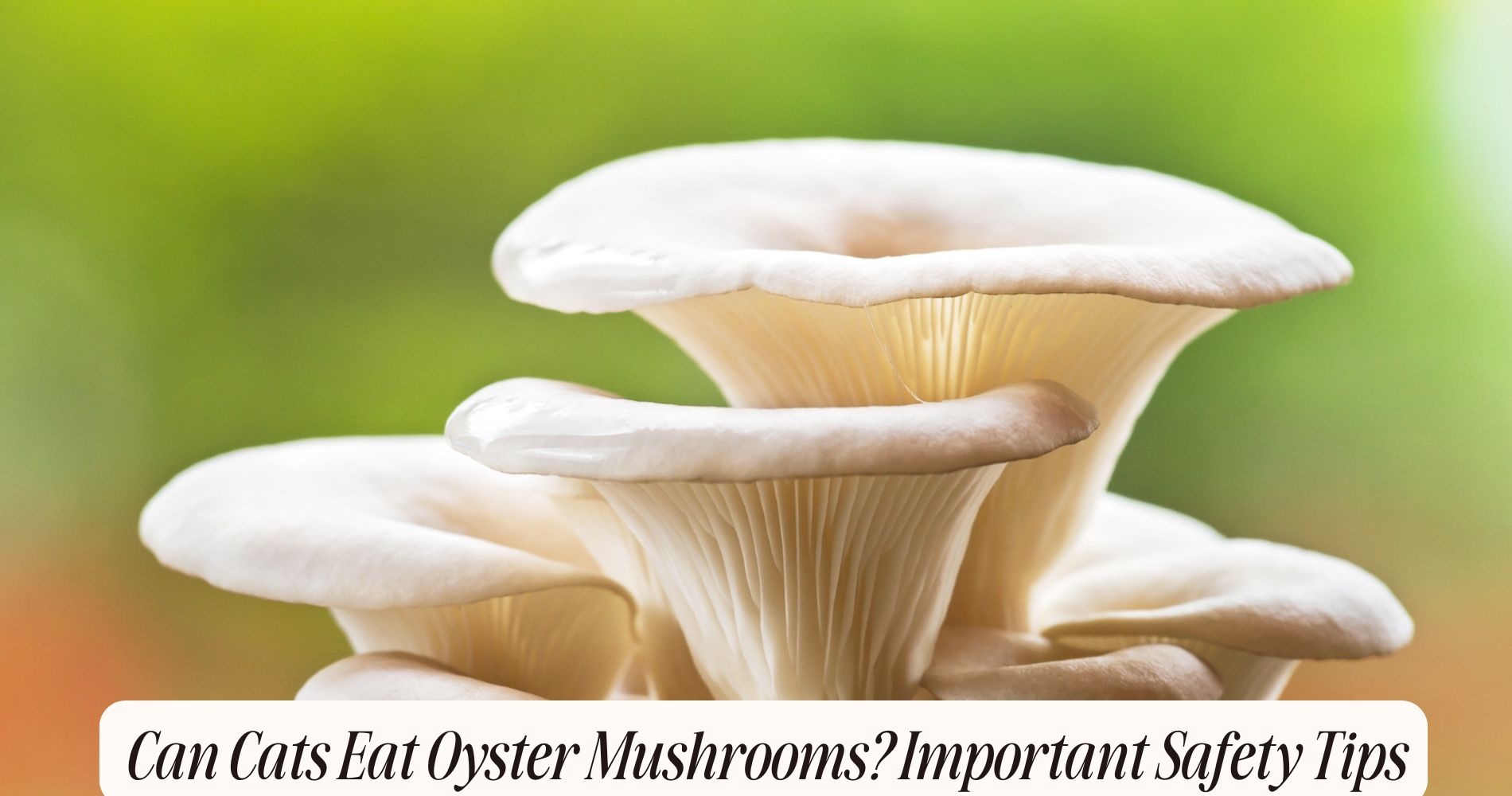
Are Mushrooms Keto Friendly? Get the Facts
Are mushrooms keto friendly? Yes, mushrooms are definitely keto-friendly! They're low in calories and carbohydrates, typically containing just 2-4 grams of net carbs per 100 grams. Varieties like white button mushrooms and portobellos pack nutrients like B vitamins and antioxidants while contributing minimal carbs to your meals. Plus, they're rich in fiber, which aids digestion and supports gut health. You can easily incorporate them into dishes, enhancing flavor without worrying about your carb count. So, if you're curious about specific varieties or how to use them in your meals, there's plenty more to explore!
Nutritional Profile of Mushrooms
When you plunge into the world of mushrooms, you'll discover they're not just a tasty addition to your meals; they also boast an impressive nutritional profile. Various mushroom varieties, such as shiitake, portobello, and oyster, provide a wealth of vitamins and minerals while being low in calories.
For instance, a cup of raw mushrooms contains about 15 calories and is packed with essential nutrients like B vitamins, selenium, and potassium. These nutrients play a significant role in supporting your immune system and overall health.
Mushrooms are also rich in antioxidants, which help combat oxidative stress in your body. They contain polysaccharides, including beta-glucans, that can enhance your immune response and may even lower cholesterol levels.

Furthermore, the fiber found in mushrooms aids digestion and promotes a healthy gut. By incorporating a variety of mushrooms into your diet, you can enjoy their unique flavors while reaping numerous health benefits.
Whether you're sautéing them, adding them to soups, or tossing them in salads, mushrooms can elevate your meals nutritionally and culinarily. So, don't hesitate to explore the diverse world of mushrooms and their remarkable contributions to your health.
Carbohydrate Content Explained
Mushrooms aren't only low in calories and high in nutrients, but they also have a particularly appealing carbohydrate content for those following a keto diet. Most mushroom varieties, including button, shiitake, and portobello, contain about 2-4 grams of carbohydrates per 100 grams, making them an excellent option for maintaining ketosis.
When you consider carbohydrate types, mushrooms primarily consist of fiber and polysaccharides, which offer health benefits without greatly impacting blood sugar levels. The fiber in mushrooms helps with digestion and can contribute to a feeling of fullness, which is beneficial on a low-carb diet.
It's essential to note that not all mushroom varieties have the same carbohydrate content; for example, certain wild mushrooms might've slightly higher levels. However, the overall carbohydrate count remains relatively low across the board.
Incorporating mushrooms into your meals can enhance flavor and texture while keeping your carb intake in check. Whether you sauté them, add them to salads, or use them in soups, mushrooms can be a versatile addition to your keto lifestyle.
Health Benefits of Mushrooms
Mushrooms pack a powerful nutritional punch, offering a range of vitamins and minerals that can enhance your overall health.
Their antioxidant properties help combat oxidative stress, while their unique compounds can give your immune system a much-needed boost.
Incorporating mushrooms into your keto diet not only supports your nutritional needs but also contributes to long-term wellness.
Nutrient Density Overview
Packed with essential nutrients, mushrooms offer a plethora of health benefits that make them an excellent addition to a ketogenic diet. Whether you choose button, shiitake, or portobello varieties, each type brings its unique set of vitamins and minerals. For example, mushrooms are low in calories yet rich in B vitamins, selenium, and copper, all of which support energy production and immune function.
Incorporating mushrooms into your meals can enhance your nutrient intake without adding significant carbs. You can sauté them, grill them, or use them in soups and salads to maximize their flavor and health benefits. Different cooking methods can also affect their nutrient density; for instance, grilling may enhance their antioxidant properties, while sautéing can help retain more water-soluble vitamins.

Moreover, mushrooms are a great source of dietary fiber, which promotes gut health and aids in digestion. By including a variety of mushroom types in your ketogenic meals, you not only diversify your diet but also take advantage of their powerful nutrients.
Antioxidant Properties Explained
Including a variety of mushrooms in your ketogenic meals not only enhances nutrient intake but also provides significant health benefits, particularly their antioxidant properties.
Mushrooms, such as shiitake and maitake, are rich in antioxidants that help combat oxidative stress in your body. This stress is caused by free radicals, unstable molecules that can damage cells and contribute to chronic diseases.
The antioxidant mechanisms found in mushrooms work by neutralizing these free radicals, thereby reducing potential harm. For example, compounds like ergothioneine and selenium are known for their ability to scavenge free radicals, providing a protective effect.
By incorporating mushrooms into your diet, you're not just adding flavor but also bolstering your body's defenses against oxidative damage.
Research shows that the antioxidants in mushrooms can enhance overall health and may even lower the risk of certain diseases.
So, when you're planning your meals, remember that adding a variety of mushrooms not only aligns with your keto goals but can also support your health through their powerful antioxidant properties.
Enjoy exploring different types of mushrooms to reap these benefits while keeping your meals delicious and nutritious.
Immune System Support
Immune system support is a crucial aspect of overall health, and certain mushrooms play a significant role in enhancing your body's defenses. Research indicates that mushrooms like shiitake, maitake, and reishi are packed with compounds that boost your immune function. These fungi contain beta-glucans, which are known for their immune-boosting properties. When you consume these mushrooms, you might enhance your body's ability to ward off infections and diseases.
Additionally, mushrooms are rich in antioxidants, which help combat oxidative stress and inflammation—two factors that can weaken your immune system. For instance, reishi mushrooms have been shown to increase the activity of white blood cells, the body's primary defense against pathogens.
Incorporating mushrooms into your diet not only provides numerous mushroom benefits but also supports your overall health. Whether you enjoy them in soups, stir-fries, or salads, these nutrient-dense foods can be a delicious way to bolster your immune system naturally.
Popular Mushroom Varieties
When exploring popular mushroom varieties, you'll find a range of common edible types like button, shiitake, and portobello.
Each variety offers unique nutritional profiles, making them not just flavorful but also beneficial for your diet.
Plus, understanding their culinary uses can enhance your meals while keeping them keto-friendly.
Common Edible Varieties
Mushrooms offer a delightful array of flavors and textures that can enhance any dish, making them a popular choice for those on a ketogenic diet. With numerous mushroom types to choose from, you can easily incorporate them into your meals for added depth and nutrition.
Common edible species include button mushrooms, cremini, and portobello, each bringing unique qualities to your plate. Button mushrooms are mild and versatile, perfect for salads or stir-fries. Cremini mushrooms have a richer flavor, making them excellent in soups and sauces. Portobello mushrooms, with their meaty texture, can even serve as a hearty substitute for burgers.

Other notable varieties include shiitake, known for its distinct umami taste, and oyster mushrooms, which have a delicate flavor and a unique shape. Each of these mushroom types not only enhances your culinary creations but is also low in carbohydrates, aligning well with a keto lifestyle.
Experimenting with these edible species can help diversify your meals while keeping them keto-friendly. So, don't hesitate to explore the world of mushrooms and discover how they can elevate your ketogenic diet!
Nutritional Profiles Overview
If you're looking to boost your keto diet with nutritious options, understanding the nutritional profiles of popular mushroom varieties can be incredibly beneficial. Mushrooms are low in carbohydrates, making them an excellent choice for anyone following a keto lifestyle.
For instance, white button mushrooms contain about 2.3 grams of net carbs per 100 grams and provide essential nutrients like B vitamins and selenium.
On the other hand, portobello mushrooms, known for their rich, earthy flavor, have slightly more carbs at around 4.3 grams per 100 grams but are also packed with antioxidants.
Shiitake mushrooms, which offer a unique umami taste, boast about 6.8 grams of net carbs per 100 grams. However, they're high in vitamins D and B6, contributing positively to your overall health.
Lastly, oyster mushrooms are another low-carb option, with only 3.3 grams of net carbs per 100 grams. Their delicate flavor complements various dishes while keeping your carb intake in check.
Culinary Uses Explained
While exploring the diverse culinary landscape, you'll find that different mushroom varieties can elevate your dishes in unique ways. From the earthy flavor of cremini to the delicate taste of enoki, each type offers distinct characteristics that can enhance your meals.
For instance, shiitake mushrooms are known for their rich umami profile, making them a fantastic addition to stir-fries or soups.
When it comes to culinary techniques, sautéing is a popular method that allows the natural flavors of these mushrooms to shine. You can quickly cook them with some olive oil, garlic, and herbs for a delicious side dish.
Grilling is another excellent technique, especially for portobello mushrooms, which can serve as hearty burger alternatives.
If you're into stuffed dishes, you might consider using large caps, like portobello or oyster mushrooms, filled with cheese, vegetables, or meat.
Each mushroom variety has its own texture and moisture content, affecting cooking times and flavor absorption, so don't hesitate to experiment.
Incorporating Mushrooms Into Meals
Incorporating mushrooms into your meals can elevate both flavor and nutrition, making them a versatile choice for those following a keto diet. These low-carb vegetables are rich in fiber, vitamins, and minerals, helping you maintain a balanced intake while keeping your carbohydrate count low.
You can easily add mushrooms to a variety of dishes. For instance, sautéed mushrooms can enhance your morning omelet or serve as a flavorful topping for grilled meats. Consider using them in mushroom recipes like creamy mushroom soup or stuffed mushrooms, which can be delightful additions to your meal prep.

Mushrooms also work well in stir-fries, casseroles, and salads, adding depth and texture without the extra carbs. If you're looking for a hearty alternative, try using portobello mushrooms as a bun substitute in burgers.
When meal prepping, consider roasting a batch of mixed mushrooms in olive oil, garlic, and herbs. They can be stored in the fridge and added to various dishes throughout the week, ensuring you always have a nutritious ingredient on hand.
With their versatility, mushrooms can be a tasty and beneficial part of your keto lifestyle.
Common Myths About Mushrooms
Mushrooms are often surrounded by misconceptions that can cloud your understanding of their benefits, especially for those on a keto diet. One common myth is that all mushrooms are high in carbs. In reality, most varieties, like button and shiitake mushrooms, are low in carbohydrates and can fit comfortably into your keto meal plan.
Another prevalent mushroom misconception is that they provide minimal nutritional value. On the contrary, mushrooms are packed with vitamins, minerals, and antioxidants, making them a nutritious choice. They're particularly high in B vitamins, which assist in energy production and metabolism.
You might also hear that mushrooms can be toxic or harmful. While it's true that some wild mushrooms are poisonous, the types you find at grocery stores are safe to eat and have been thoroughly tested for safety.
Lastly, some people believe that mushrooms lack flavor. However, when cooked properly, they can add a rich umami flavor to dishes, enhancing your meals without compromising your keto goals.
Tips for Buying and Storing
When you're ready to buy mushrooms, look for firm specimens with a smooth, unblemished surface. Fresh mushrooms should feel slightly springy and shouldn't have any dark spots or excessive moisture.
Pay attention to the gills; they should be dry and intact. For ideal mushroom selection, consider buying from local farmers' markets or reputable grocery stores to guarantee quality and freshness.
Once you've picked the best mushrooms, proper storage techniques are essential to maintain their flavor and texture. Store them in a paper bag in the refrigerator, as this allows for air circulation while preventing moisture buildup.
Avoid plastic bags, which can trap humidity and lead to spoilage. If you notice any moisture inside the bag, gently wipe the mushrooms with a dry cloth before returning them to storage.
Use your mushrooms within a week for the best taste and quality. If you have surplus mushrooms, consider sautéing and freezing them.
This method preserves their flavor and makes them ready to use in future meals, assuring you get the most out of your mushroom purchase while adhering to your keto-friendly lifestyle.
Boost Your Keto Lifestyle with Well Gummies' Ultimate Wellness Bundle
Looking for a keto-friendly way to support your health? Try Well Gummies' Ultimate Wellness Bundle! This convenient gum chew product features All-in-One Mushroom Gummies for daily nourishment and Lion's Mane Focus and Energy Gummies for an extra boost when needed. With 10 types of mushrooms, these vegan gummies naturally fuel your brain, enhance focus, and support immune health—all while fitting perfectly into a keto lifestyle. Enjoy the fresh wild berry flavor without jitters or crashes, and experience calm, steady energy all day long!
Frequently Asked Questions
Can Mushrooms Trigger Allergies in Some Individuals?
Yes, mushrooms can trigger allergies in some individuals. If you experience mushroom allergy symptoms like itching or swelling, it's vital to avoid them. Always guarantee safe mushroom consumption by consulting a healthcare professional if you're uncertain.
Are There Any Toxic Mushroom Varieties to Avoid?
Yes, there are toxic mushroom varieties to avoid. You should learn toxic mushroom identification to guarantee safe mushroom consumption. Some common toxic species include the Amanita phalloides and Gyromitra esculenta. Always consult a guide or expert.
How Should Mushrooms Be Cleaned Before Cooking?
Before cooking, you should clean mushrooms using effective techniques. For delicate types like chanterelles, gently brush off dirt; for sturdier mushrooms, rinse briefly under cold water. Always dry thoroughly to maintain their texture and flavor.
Do Mushrooms Have Any Effects on Blood Sugar Levels?
Mushrooms, particularly types like shiitake and portobello, can help stabilize blood sugar levels. Their low carbohydrate content and high fiber promote better glycemic control, making them a smart addition to your balanced diet.
Can Mushrooms Be Included in Vegetarian or Vegan Keto Diets?
Absolutely, you can include various mushroom varieties in your vegetarian or vegan keto diet. They're low in carbs and can enhance keto recipes, providing flavor and nutrients while keeping your meals exciting and satisfying.
Conclusion
Incorporating mushrooms into your keto diet can be a delicious and nutritious choice. With their low carbohydrate content and numerous health benefits, they serve as a versatile ingredient in various meals. By debunking common myths and understanding how to buy and store them, you can enjoy mushrooms while staying within your dietary goals. So, don't hesitate to experiment with different varieties and recipes to enhance your keto journey with these flavorful fungi.




